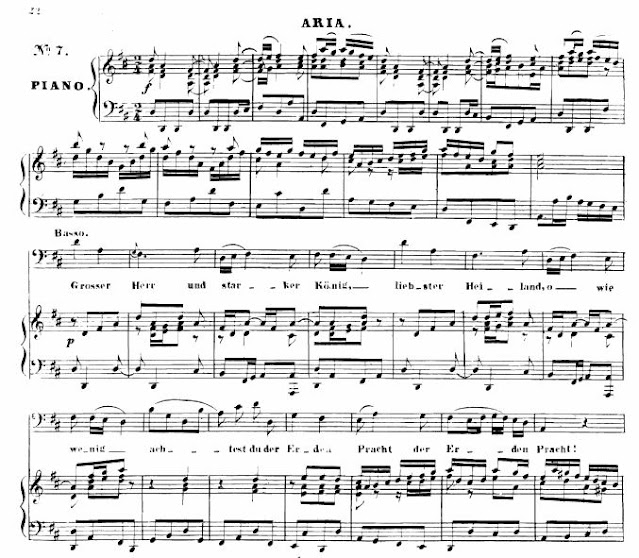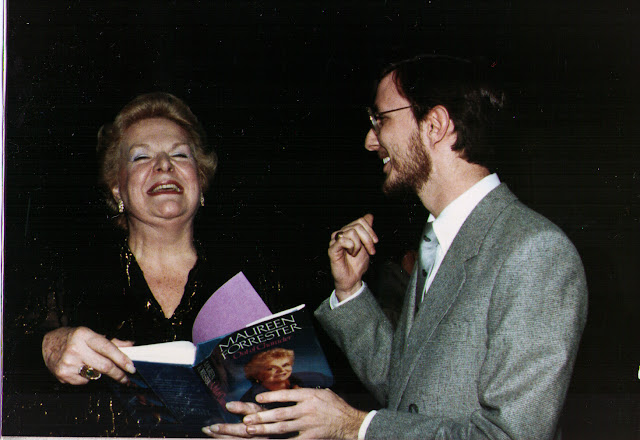BRUCKNER 9
I remember very clearly the first time(s) I heard Anton Bruckner's 9th Symphony. Over a weekend in 1983 I was previewing music to play on my radio show at WCWM, so I'd taken a few records (LPs!) back to the dorm room for a listen. When my roommate was gone, I played Bruno Walter's 1959 recording of the symphony. Since LPs only allowed 22 minutes per side (and poor Anton wasn't aware of - or didn't care about! - this fact when he composed it in the late 19th century), the second movement (Scherzo) faded out in the middle at the end of Side 1 and faded back in on Side 2. But what a fade-in!
The following day I had my P.E. class (folk dancing) in the college gym with a couple of other guys and 40 co-eds. I set up the portable record player and speakers before the class and, before others arrived, I put on the Bruckner to see what it would sound like with the resounding acoustics of the big gym. Well, when the brass kicked in, the place rocked! It was truly thrilling - as if I were conducting the orchestra myself.
I believe the first live performance I heard of it was under Sergiu Celibidache with the Munich Philharmonic. The Rumanian conductor was famous for his interpretations of Bruckner. In the first half, Daniel Barenboim had played Brahms' Second Piano Concerto, another of my favorites. It was a pretty special performance because of that, but it was perhaps most memorable because during the intermission my girlfriend admitted that she wasn't sure she had turned off the stove when we left her apartment in the Olympic Village there in Munich. She got so antsy during the Bruckner that she had to leave and go walk around outside. I stuck it out, figuring we would hear the fire trucks' sirens even over the Munich band. Well, she had also locked her key in the apartment, so when we got back there at 10:30 pm, we had to go knock on the door of the man in charge of the complex. He didn't want to help us; he just said, you can sleep outside and if the apartment burns up your insurance will pay for it. Eventually, after a lot of sweet-talking and more begging, he opened the door and we discovered everything was fine.
Just as it is difficult to like everything about a culture or a city or a person, I find it normal to pick and choose what I like by a composer. With Bruckner I could live without his other eight symphonies. I even walked out of an incredibly boring performance of the 7th in Trenton, NJ. Only time I've ever done that. It just became unbearable. I've since enjoyed a 7th in Stuttgart, but nothing grabs me like his 9th. I wonder what the fourth and final movement of that symphony would have sounded like, had the composer not died while composing it.
Helmuth Rilling was gracious enough to spend some time researching what that fourth movement might have sounded like. He presented the results of his study at the Bach Akademie in Stuttgart in 2004. His international student orchestra rehearsed three different versions of that movement and played them for the audience in which I was lucky enough to be sitting. The first version - about 25 measures - sounded nothing like what I would imagine the d-minor Symphony would end with. After that, the orchestra played a bit more of a second version - perhaps 50 bars. Still not a hit. Then they played around 90 measures of a very convincing bit, even though it also just stopped right in the middle of a bar. I loved the way Rilling explained the process and said to the audience, "You'll never hear this collection of Fourth Movements again. We learned them and are playing them for you just this once."
In the final performance of that festival, the orchestra was joined by a full choir to sing Bruckner's heavenly Te Deum, which the composer supposedly asked to be played as the finale of his as yet unfinished Ninth Symphony. He was very ill and didn't think he would finish his d-minor Symphony. Since the Te Deum would add another 23 minutes to the 60-minute torso of the symphony - and require a choir and soloists - it is rarely performed today together with the 9th.
However, since 1983 a dozen completed versions of a fourth movement have been circulating in concert halls and on the radio waves, receiving varied amounts of love among Bruckner fans. You can hear five of them conducted by Peter Hirsch on Sony Classics (or YouTube). I haven't really warmed to any of them yet. I'll stick with the first three - they're a charm!




Comments
Post a Comment